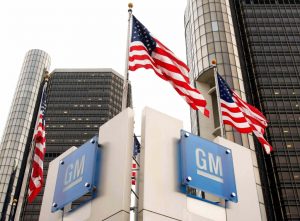 General Motors (NYSE:GM) launched Maven, its new ride-sharing service, in New York City on Monday. NYC is a key market for Maven, and could be one of its strongest, given the urban density. The service will initially have 80 cars available around Manhattan. Maven will continue to grow its fleet in NYC as demand increases for the service.
General Motors (NYSE:GM) launched Maven, its new ride-sharing service, in New York City on Monday. NYC is a key market for Maven, and could be one of its strongest, given the urban density. The service will initially have 80 cars available around Manhattan. Maven will continue to grow its fleet in NYC as demand increases for the service.
Maven will compete with Uber and yellow cabs in New York City. The vehicles can be reserved on either an hourly or daily basis. Prices start at $8 an hour and vary by vehicle. All of the vehicles available from the service include 4G LTE Wi-Fi hotspots, CarPlay and Android Auto, as well as OnStar support. The service takes care of the insurance and fuel expenses.
Maven began operating in January 2016 and has since expanded to 18 cities in the U.S. and Canada. The service now has more than 37,000 members that have tallied over 125 million miles in Maven vehicles. Maven will continue to roll out to additional markets as the brand identifies new markets in need of car sharing services. The service is already live in San Diego and will launch in San Francisco and Los Angeles later this year.
In other General Motor news, the company recently announced that it would take a $100-million charge against its profits after its assembly plant in Venezuela was seized last month by government officials. The automaker plans to “deconsolidate” those operations from its accounting books, meaning it will no longer include earnings or losses from Venezuela in its South American results.
GM says the plant is no longer under the company’s control and that it is unlikely to regain control of the plant anytime soon. GM had been concerned about losing control of the plant for several years amid political and economic chaos in the country. GM opened the plant in 1948 but stopped making vehicles there as the economy sputtered.
However, GM has not given up on its legal rights. The company has said it plans to fight the seizure. The automaker filed an appeal with the Venezuelan Supreme Court last week to dismiss the underlying lawsuit that led to the seizure.
